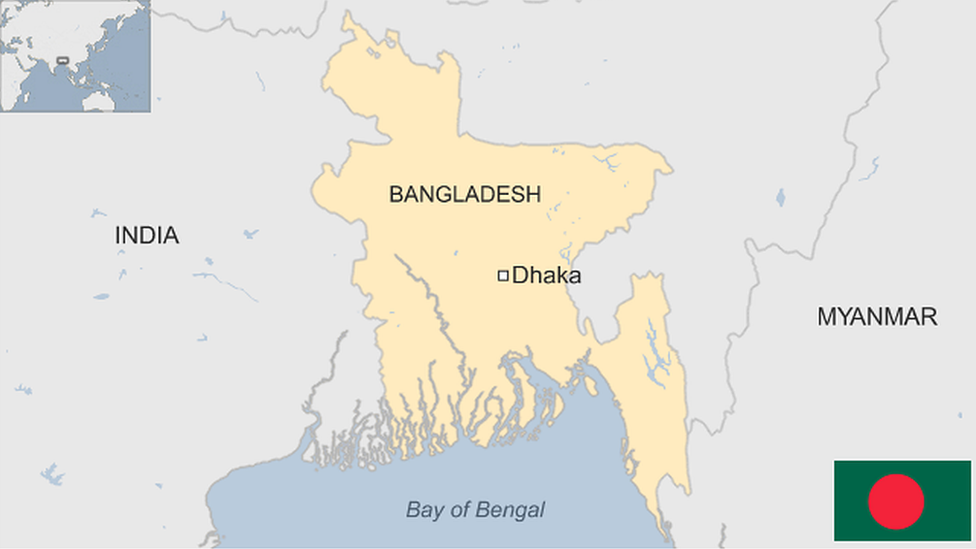Pakistan country profile
- Published
This page is no longer being updated. It was last updated on 15 March 2024
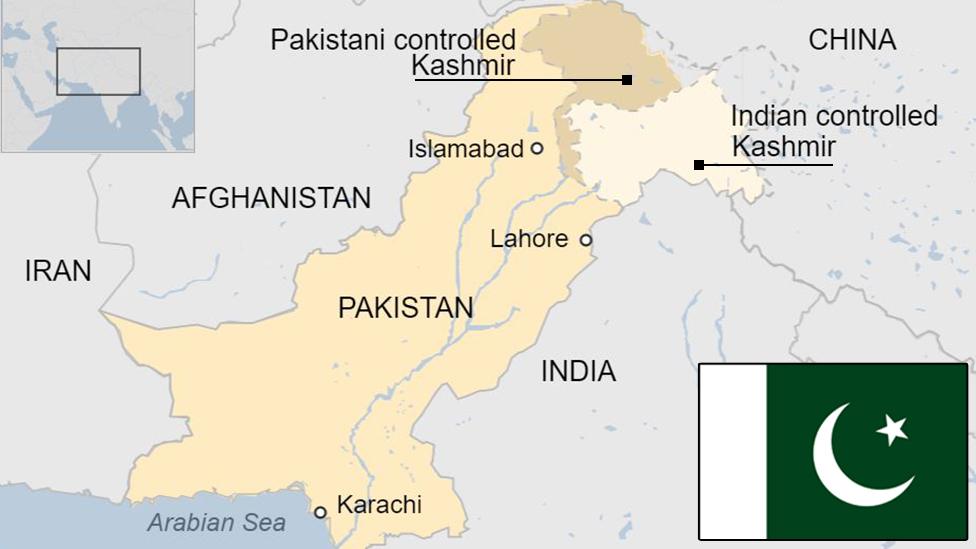
The Muslim-majority state of Pakistan was born out of the partition of the Indian sub-continent in 1947, and has faced both domestic political upheavals and regional confrontations.
Created to meet the demands of Indian Muslims for their own homeland, Pakistan was originally made up of two parts.
The break-up of the two wings came in 1971 when the Bengali-speaking east wing seceded with help from India to become the independent state of Bangladesh.
Development in Pakistan has been hampered by Islamist violence and economic stagnation, and relations with its key neighbours India and Afghanistan are often fraught.
Read more country profiles, external - Profiles by BBC Monitoring, external
ISLAMIC REPUBLIC OF PAKISTAN: FACTS
Capital: Islamabad
Area: 881,913 sq km
Population: 242.9 million
Languages: Urdu, English, Punjabi, Sindhi, Pashto, Balochi
Life expectancy: 66 years (men) 68 years (women)
LEADERS
President: Asif Ali Zardari
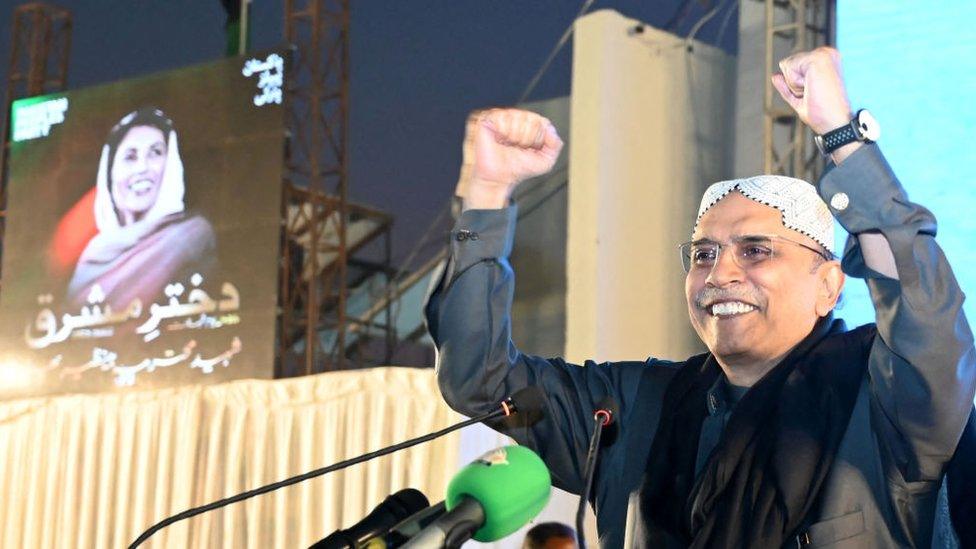
Pakistan Peoples Party's co-chairperson Asif Ali Zardari won a second term as Pakistan's president in March 2024.
The widower of Pakistan's assassinated first female leader, Benazir Bhutto, Zardari was voted into the largely ceremonial post by the PPP, which formed an alliance with the Pakistan Muslim League-Nawaz (PMLN) party after Pakistan's disputed February 2024 elections.
Pakistan is a parliamentary republic where the prime minister wields most power, but presidents have often played key roles in constitutional crises.
Prime Minister: Shehbaz Sharif
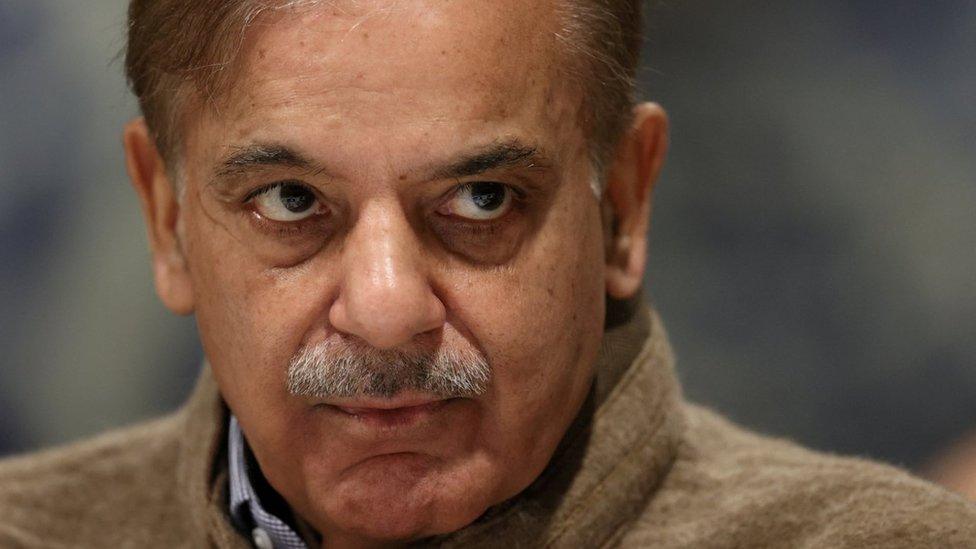
Following the inconclusive February 2024 elections, Pakistan's parliament elected Shehbaz Sharif as prime minister for a second term.
Mr Sharif's PML-N party came second in the poll. Independent candidates backed by jailed former Prime Minister Imran Khan's Tehreek-e-Insaf (PTI) won the most seats but failed to get a majority.
He defeated his rival, Omar Ayub, who was supported by Mr Khan's PTI. The elections were mired in controversy, with Mr Khan's PTI party alleging the vote was rigged to keep his supporters out of power.
In his victory speech, Mr Sharif said that as no side had a clear parliamentary majority, it was "the democratic way" that "like-minded parties may form a coalition government".
Following the election, the Pakistan Muslim League Nawaz (PML-N) - headed by Nawaz Sharif, a former prime minister who is Shehbaz Sharif's brother - reached a coalition deal with the Pakistan People's Party (PPP).
KASHMIR

The Himalayan region of Kashmir has been a flashpoint between India and Pakistan for over six decades.
Since India's partition and the creation of Pakistan in 1947, the nuclear-armed neighbours have fought two wars over the Muslim-majority territory, which both claim in full but control in part.
Today it remains one of the most militarised zones in the world. China administers parts of the territory.
MEDIA
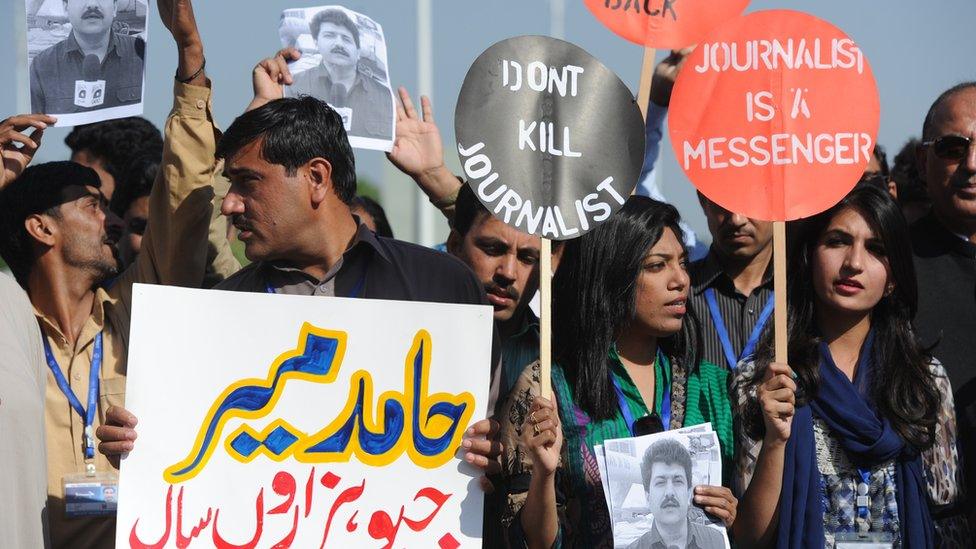
Activists say journalists live in growing fear of violence
Pakistan is one of the world's deadliest countries for journalists, with 14 media workers being killed in 2014 alone. Both intelligence agents and members of banned militant organisations are responsible for the threats to reporters, according to media watchdog organisations.
The government uses legal and constitutional powers to curb press freedom and the law on blasphemy has been used against journalists. Critics have raised concerns over the restrictive nature of a new code of conduct for broadcasters introduced in 2015.
TIMELINE
Some key dates in Pakistan's history:
1947 - Muslim state of East and West Pakistan created out of partition of India at the end of British rule.
1948 - First war with India over disputed territory of Kashmir.
1971 - East Pakistan attempts to secede, leading to civil war. India intervenes in support of East Pakistan which eventually breaks away to become Bangladesh.
1999 - Army chief Pervez Musharraf seizes power in coup, ousting Prime Minister Nawaz Sharif.
2007 - Former Prime Minister Benazir Bhutto is assassinated while on campaign trail for 2008 parliamentary election.
2018 - Former international cricket star Imran Khan becomes prime minister on a pledge to end corruption and dynastic politics, but loses power four year later.
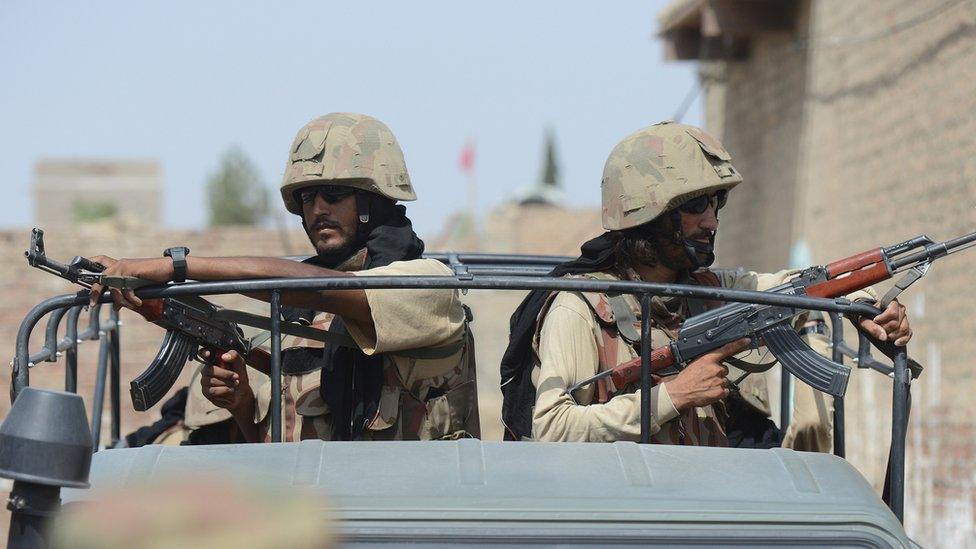
The Pakistani army has been waging a campaign against Islamist militants in the north-western areas bordering Afghanistan
Related topics
- Published14 October 2024

- Published10 March
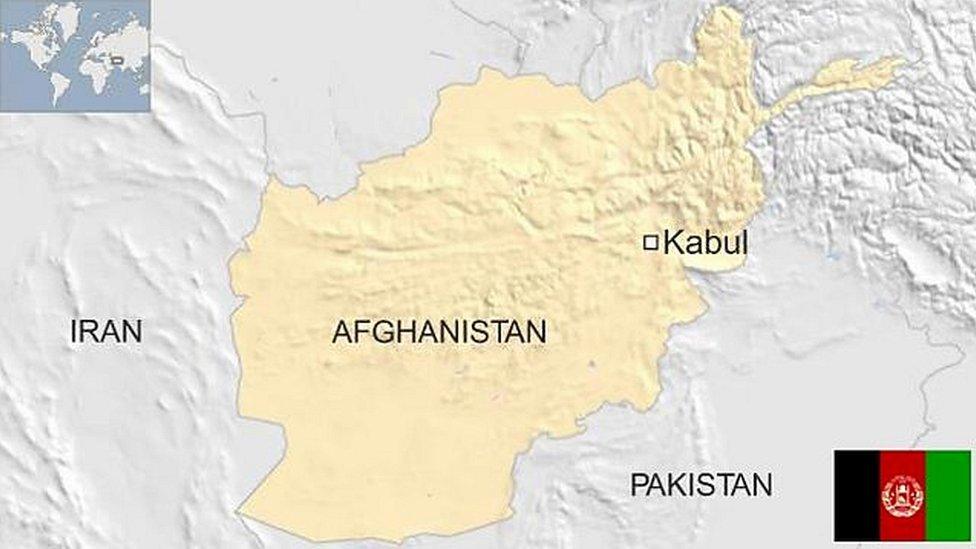
- Published25 August 2023
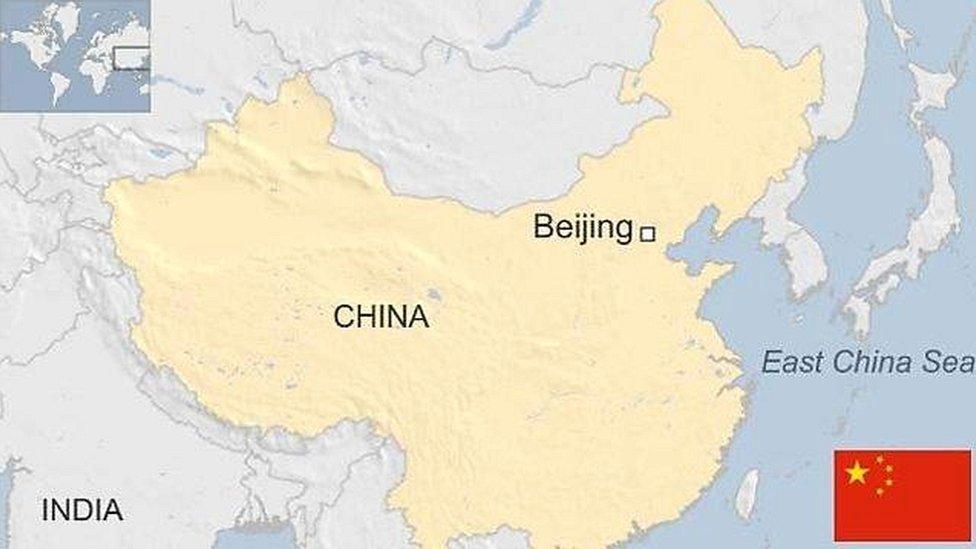
- Published10 March
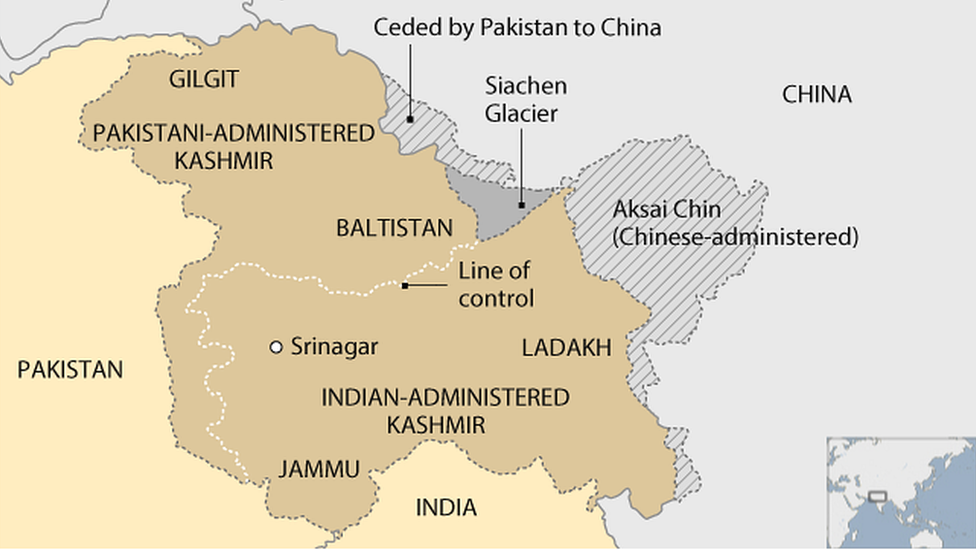
- Published10 March
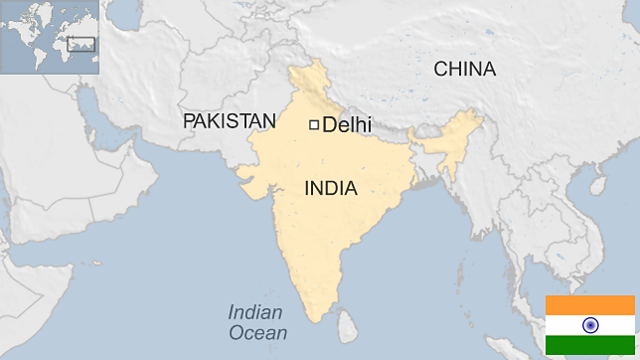
- Published10 March
